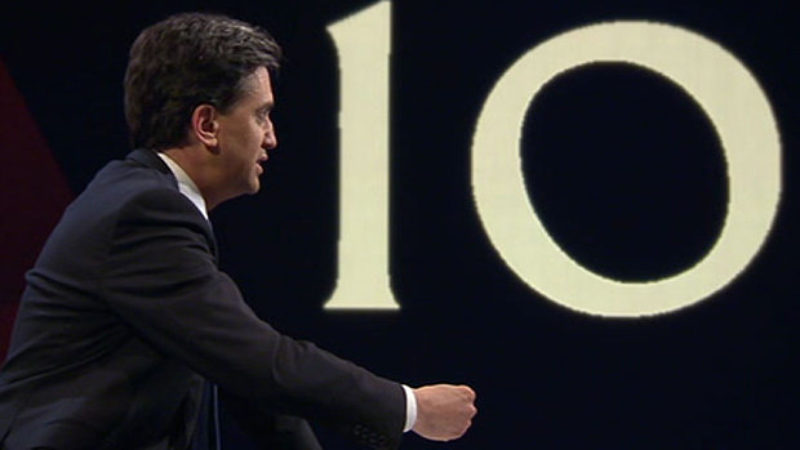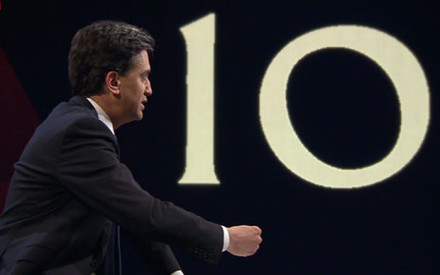
Tonight is the second of the Leader’s debates. This is the weird pile-on debate with seven different people all vying for our attention. It will be hard to stand out from this crowd, Hard to break from the pack. But tonight might be Ed Miliband’s best chance to win over voters who are considering the smaller parties. Tonight’s performance may be even more important than last week’s non-debate. So how should Ed approach this event and the other parties taking part?

The most important thing Ed can do is be himself. He is polite and a good listener. That will be essential tonight. While the ultimate choice may well be between Ed and David Cameron as to who will be in number 10, many voters are considering other parties and will not thanks Ed for being rude or dismissive of his challengers. Listening, understanding what is said and taking it on board positively will be essential to showing we mean it when we talk about a new way of doing politics – something those who are considering voting for smaller parties are crying out for.
But – crucially – Ed mustn’t agree all the time. he shouldn’t get in people’s faces (There will be no room tonight for a “hell yeah” moment) but we do not need an “I agree with Nick” moment tonight. Ed is not on that stage negotiating a potential future coalition. He is auditioning to win voters. So where the parties have differences, we should not be afraid to let them show (even when – like over Trident – they are differences that split our own party). We are not “all the same”. Prove it. The other parties will likely pile on us and try to lump us in with the Tories. It will be an incredible tightrope to walk, but somehow Ed must maintain his polite interest in the face of that onslaught while remembering that those he wishes to reach are not those on the stage, but those watching at home. They don’t want to see this resort to cheap jibes and mudslinging. Ed must be the leader for them.
To answer the questions that are put to Ed in the time allotted he will need to be concise. To do this, he will need to drop some of the verbal tics that have become as a comfort blanket to him. He mustn’t tell us what question he is going to answer. No more “what I would say to you….” or “if you’re asking…” just straight answers to the broad questions put. Look down the camera and at the questioner. Engage well as you did in the first debate – even when the audience is tough – especially when the audience is tough.
You are not going to be the radical alternative on that stage. So your job, a much tougher and more difficult job than pretty much everyone else’s, is to make the case for nuance. The row that blew up last weekend over our pledge mugs shows how important this is. Immigration policy can’t and shouldn’t be reduced to a slogan. We’re not UKIP and we mustn’t pretend to be. Immigration policy is hard. We need borders and rules – to protect those who come here as much as to protect those who already live here. Our value of fairness must be the one that wins the day. Not just on immigration but on so many other issues again this is a chance to showcase a different way of doing politics. We need to make the case for balance and for a different way of doing things. This will be the hardest part of the challenge for Ed tonight and it is uniquely difficult for Labour as the established opposition.
I think tonight will be the hardest of all the debates for Labour. But in many ways it could also be the most rewarding. Our audience tonight is not the pundits of Westminster (not even me!) but the people of the country who are undecided who to vote for. Those looking for an alternative to Cameron’s Tories, who need to know we are different enough to offer hope. That is a valuable electoral asset and it feels in short supply at times. Tonight this is what Ed must offer the country.




More from LabourList
Ashley Dalton resigns as health minister for cancer treatment
Paul Nowak column: ‘Labour must focus on the basics’
‘Labour’s two-child cap victory rings hollow while asylum-seeking children remain in poverty’